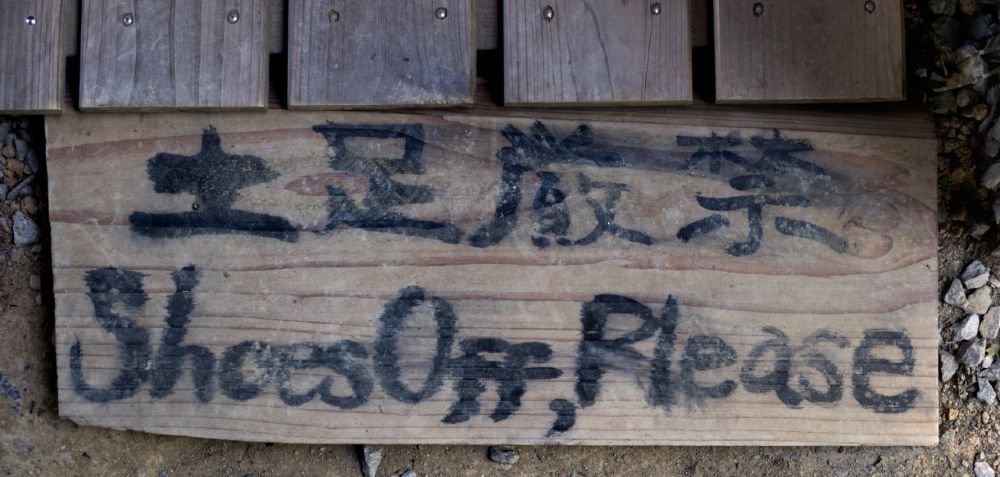Japanese Cultural Habits That Every Nation Should Adopt
When terms like "global or technological leaders" come up most people tend to think of countries like China, Japan, the United States, Russia, and several others. That being said, for many people Japan is probably right at the top. Couple this with the facts that it is one of the safest and cleanest countries in the world and has some of the longest living inhabitants, and you have to figure that they are doing something right. Its hardworking people have turned the nation into a global market leader. This is because, over the years, they have adopted some of the world's top work philosophies and these philosophies have done wonders for their workplaces. While some nations have adopted some of these rituals, there are many that haven't. Any nation could more than benefit from what the residents of Japan do on a daily basis.

Most Japanese workers start their day like this with group exercises.
Morning Exercise
Everyone knows that exercise is important, but still far too few people do it on a regular basis. Even individuals that need to do it for health reasons in some cultures still fail to fit in a daily workout. This is something that most Japanese people do every morning. Whether it be in the workplace or in the classroom, the residents of Japan all like to participate in something called asa taisou (or often "rajio taisou"). It is like a morning stretch routine that is performed to the strict counting of a leader, either in person or on the TV or radio.
It's a simple routine but one that gets the blood pumping and circulating, which has many benefits all on its own. Combine this with the alertness that you'll receive from this routine and you'll be more alert, earlier in the morning, than you've ever been. You'll be truly surprised at how much you get accomplished in a single day.
Seated Showers
You might think sitting down in the shower is counterproductive or a bit lazy. Well, the Japanese culture thinks differently and they have been proven to be right. Sitting down in the shower really preserves one's energy for later consumption. Ritual bathing has always been a popular activity in Japan, which is something that takes place at onsen hot spring resorts or sento (public bath houses), where residents are granted access to different spring pools with different temperatures and mineral compositions.
There is truly nothing like sitting in the hot springs! Getting a regular scrub down and attending a shower like this will not only do wonders for the skin, but it'll help you preserve your energy, which you can later apply to different tasks. Your mind will be free and clear and you'll be ready to work to your full potential.

There will often be a sign at a public doorway reminding people to remove their shoes.
Removal Of Shoes
If you've ever been to the country, you've probably noticed that the Japanese have shoe containers at the entrance of most of their buildings. For instance, in schools, there are shoe containers right outside the classrooms. All students are required to remove and place their shoes in these boxes before entering the classroom. This is something similar to what you'll see in a lot of karate gyms as well. Well, the reason they do this might surprise you.
The fundamental reason is that the Japanese culture makes a very clear distinction between uchi (lit. "inside") and soto (lit. "outside"), whether that's at home, at school or in the office. And traditionally Japanese floors are covered in woven straw mats known as tatami. Even the most modern homes today will usually have at least one room with tatami mat floor covering. These mats would tear under the scuffing of shoes. People will often sit and eat on these mats as well. They'll sometimes even sleep on futons placed directly on the floor. Whatever the situation is, the removal of one's shoes helps keep the area much more clean and orderly. Less cleaning means more productive time for other activities.
Gift Giving
People these days can often be seen to be rude and inconsiderate, something that especially brings to mind aspects of "me first" American culture, with most people only looking out for themselves. But when working with individuals, you need to know that you can rely on them and they need to know that they can rely on you. This not only helps foster better relationships, but it builds trust and understanding. This is why the Japanese are always giving each other gifts. Even the small gift of a free dinner could be enough to show your appreciation towards a fellow co-worker.
Some gifts are more elaborate, beautifully wrapped with elegant and complicated cord ties, showing that the giver took the time to put some thought, work, and, effort into the gift. Any kind of travel in Japan means bringing back omiyage or souvenirs for friends, co-workers and family. No matter how small or inexpensive the item, it just shows that you care about and appreciate others.
Related content
